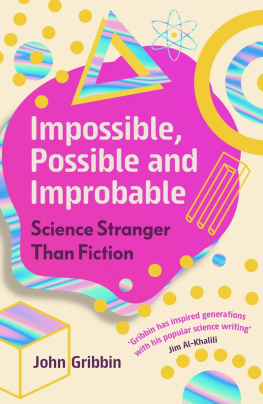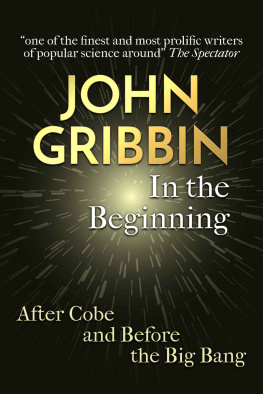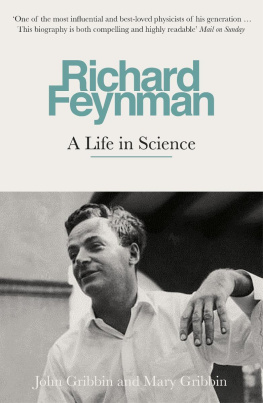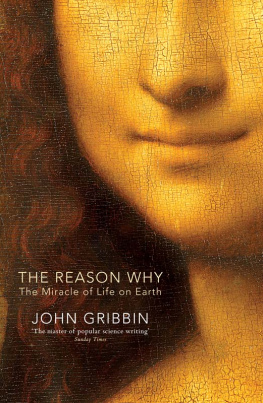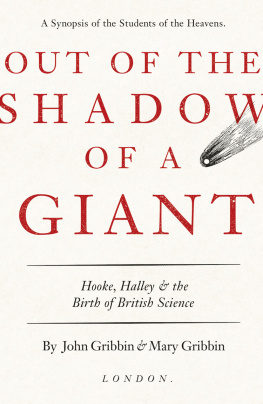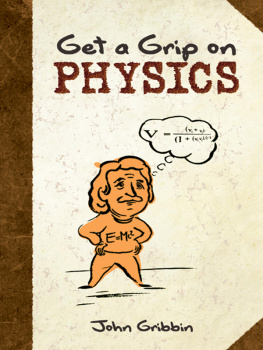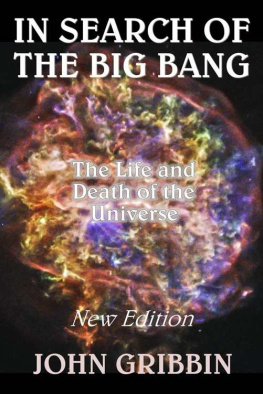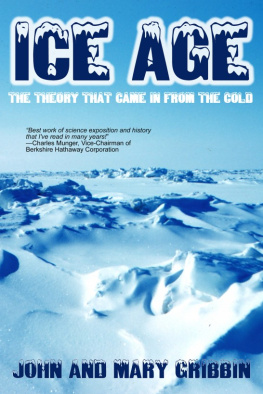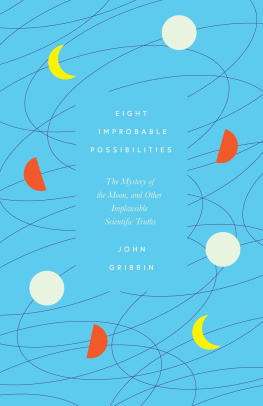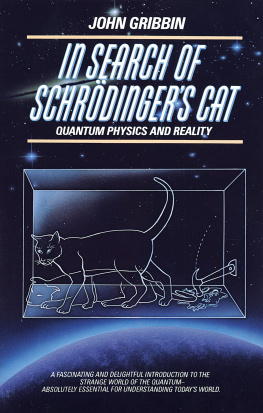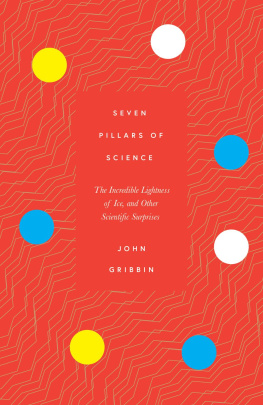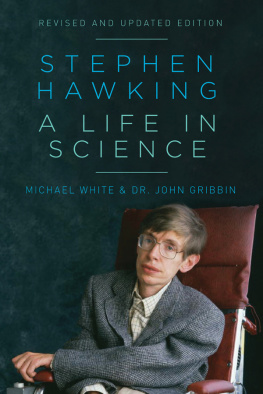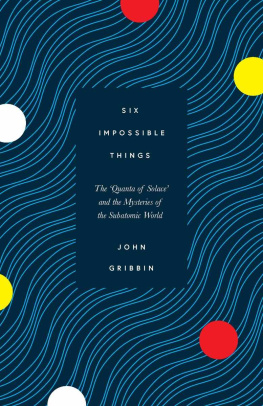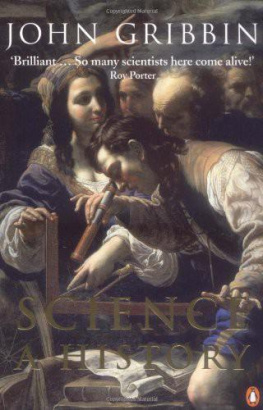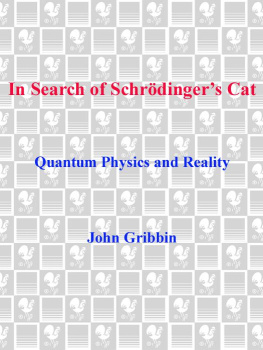John Gribbin - Impossible, Possible, and Improbable: Science Stranger Than Fiction
Here you can read online John Gribbin - Impossible, Possible, and Improbable: Science Stranger Than Fiction full text of the book (entire story) in english for free. Download pdf and epub, get meaning, cover and reviews about this ebook. year: 2022, publisher: Icon Books, genre: Romance novel. Description of the work, (preface) as well as reviews are available. Best literature library LitArk.com created for fans of good reading and offers a wide selection of genres:
Romance novel
Science fiction
Adventure
Detective
Science
History
Home and family
Prose
Art
Politics
Computer
Non-fiction
Religion
Business
Children
Humor
Choose a favorite category and find really read worthwhile books. Enjoy immersion in the world of imagination, feel the emotions of the characters or learn something new for yourself, make an fascinating discovery.
- Book:Impossible, Possible, and Improbable: Science Stranger Than Fiction
- Author:
- Publisher:Icon Books
- Genre:
- Year:2022
- Rating:4 / 5
- Favourites:Add to favourites
- Your mark:
- 80
- 1
- 2
- 3
- 4
- 5
Impossible, Possible, and Improbable: Science Stranger Than Fiction: summary, description and annotation
We offer to read an annotation, description, summary or preface (depends on what the author of the book "Impossible, Possible, and Improbable: Science Stranger Than Fiction" wrote himself). If you haven't found the necessary information about the book — write in the comments, we will try to find it.
Impossible, Possible, and Improbable: Science Stranger Than Fiction — read online for free the complete book (whole text) full work
Below is the text of the book, divided by pages. System saving the place of the last page read, allows you to conveniently read the book "Impossible, Possible, and Improbable: Science Stranger Than Fiction" online for free, without having to search again every time where you left off. Put a bookmark, and you can go to the page where you finished reading at any time.
Font size:
Interval:
Bookmark:
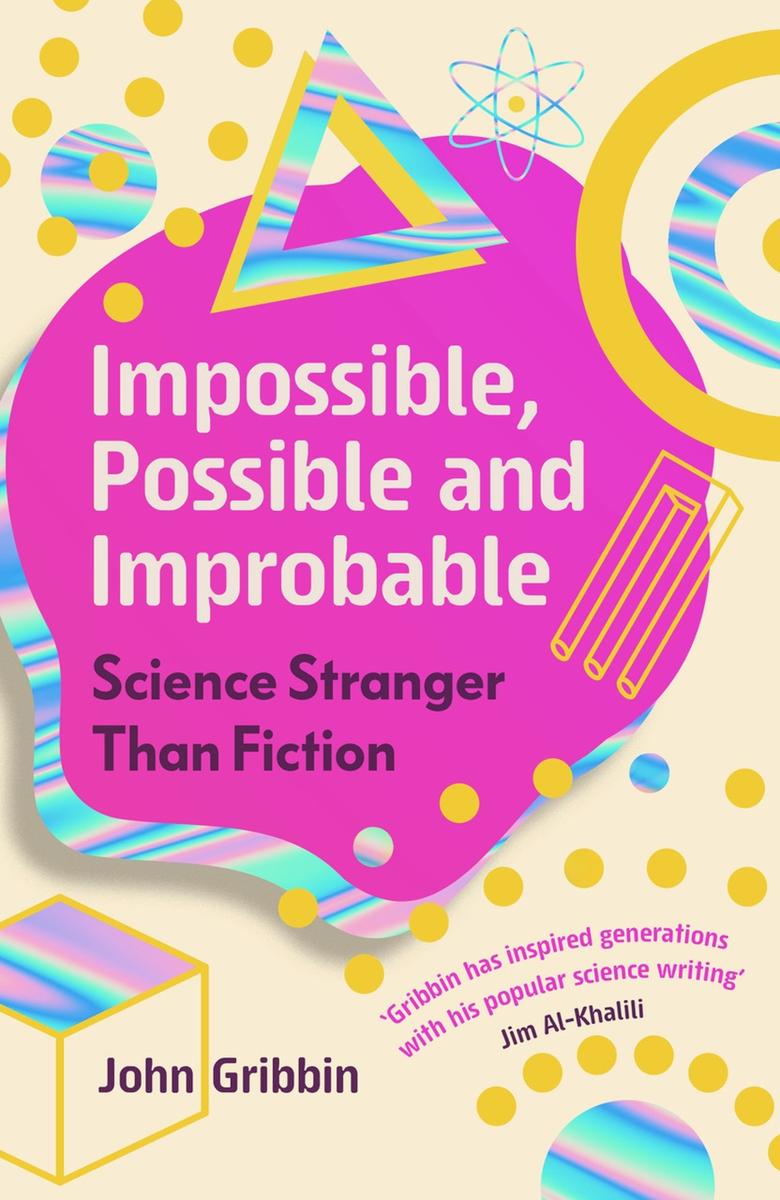
[A]n accessible primer on all things quantum rigorous and chatty.
Sunday Times
Gribbin has inspired generations with his popular science writing, and this [is a] delightful summary of the main contenders for a true interpretation of quantum mechanics. If youve never puzzled over what our most successful scientific theory means, or even if you have and want to know what the latest thinking is, this new book will bring you up to speed faster than a collapsing wave function.
Jim Al-Khalili
Gribbin gives us a feast of precision and clarity, with a phenomenal amount of information This could well be the best piece of writing this grand master of British popular science has ever produced.
Brian Clegg, popularscience.co.uk
Elegant and accessible Highly recommended for students of the sciences and fans of science fiction, as well as for anyone who is curious to understand the strange world of quantum physics.
Forbes
Light, to the point and hugely informative. It packs in the science, tells an intriguing story and is beautifully packaged.
Brian Clegg, popularscience.co.uk
[Gribbin] deftly joins the dots to reveal a bigger picture that is even more awe-inspiring than the sum of its parts.
Physics World
We loved this book deeply thought provoking and a book that we want to share with as many people as possible.
Irish Tech News
A fascinating journey into the world of scientific oddities and improbabilities.
Lily Pagano, Reaction
Gribbin casts a wide net and displays his breadth of knowledge in packing a lot into each chapter [it] may inspire readers to dig deeper.
BBC Sky at Night Magazine
- SIX IMPOSSIBLE THINGS
The Quanta of Solace and the Mysteries of the Subatomic World - SEVEN PILLARS OF SCIENCE
The Incredible Lightness of Ice, and Other Scientific Surprises - EIGHT IMPROBABLE POSSIBILITIES
The Mystery of the Moon, and Other Implausible Scientific Truths
John Gribbins numerous bestselling books include In Search of Schrdingers Cat, The Universe: A Biography, 13.8: The Quest to Find the True Age of the Universe and the Theory of Everything, and Out of the Shadow of a Giant: How Newton Stood on the Shoulders of Hooke and Halley. He is an Honorary Senior Research Fellow at the University of Sussex, and was described as one of the finest and most prolific writers of popular science around by the Spectator.
I am grateful to the Alfred C. Munger Foundation for financial support while writing this book, and to the University of Sussex for providing a base and research facilities.
As with all my books, Mary Gribbin ensured that I did not stray too far into the thickets of incomprehensibility, and Improbability Eight owes a particular debt to her. The remaining infelicities are all mine.
Half the Answer
I n The Hitchhikers Guide to the Galaxy, the answer to Life, the Universe, and Everything is 42. The essays contained in the pages of this book do indeed cover life, the Universe and (more or less) everything, but as there are only 21 of them, the best I can claim is that they provide half the answer to those ultimate questions. Even this modest achievement, however, is more than I had in mind when, back in the days before COVID-19, I combined my fascination with quantum physics and my enjoyment of short-form writing to produce Six Impossible Things.
I am not alone in my fascination with quantum physics, so that choice of subject matter needs no explanation. But why try to confront the mystery of the quantum world in short essays rather than the big book that the topic seems to demand? Part of the answer is that I had already tried the big book approach (more than once) and liked the idea of trying something completely different. But the main reason is that the short form offers a particular set of challenges that I enjoy, and a particular kind of satisfaction when it works. Explaining a scientific concept in 3,000 words is often much harder than explaining it in 30,000 words, but harder or not it is a different skill, just as the ability to paint tiny miniatures is a different skill from the ability to paint life-size portraits. I seem to have acquired this skill young I was sometimes mildly reprimanded during English lessons at school for making my prcis too short and honed it during my time as a journalist, notably with New Scientist.
Looking back at some of my early books, it is obvious that they were really a series of New Scientist-level essays labelled as chapters and put between covers. Developing from this into proper books with a narrative thread running from the beginning through the middle to the end was a notable achievement, I felt, but I was increasingly attracted to the idea of combining this achievement with writing something shorter to convey the maximum information as briefly (and intelligibly) as possible. The biggest challenge of this kind would be quantum physics so the idea for Six Impossible Things was born. It seemed to work, and as there was a demand for more, the obvious subject to tackle next (as being almost as difficult to understand as quantum physics) was life. As one reviewer commented, the next book should probably have been called Seven Pillars of Life, but my journalistic training led me (probably mistakenly, I now realise) to the mild alliteration of Seven Pillars of Science. I hope nobody found that too confusing.
The possibility of expanding the series seemed at that point highly improbable, but while re-reading the complete Sherlock Holmes stories during lockdown (actually, listening to the superb narration by Stephen Fry), I was reminded of one of my favourite quotations When you have excluded the impossible, whatever remains, however improbable, must be the truth which must also have been a favourite of Conan Doyle, since it appears in slightly different versions in several of the stories. What, I mused, were the most improbable things we have discovered about the Universe? To complete the trilogy along the lines I had begun, I had to select Eight Improbable Possibilities, taking me halfway to the answer proposed by Douglas Adams. Which seems like a good place to stop and take stock of the story so far.
John Gribbin
February 2022
IMPOSSIBLE
THINGS
The Quanta of Solace
and the Mysteries of
the Subatomic World
Alice laughed: Theres no use trying, she said; one cant believe impossible things.
I daresay you havent had much practice, said the Queen. When I was younger, I always did it for half an hour a day. Why, sometimes Ive believed as many as six impossible things before breakfast.
Alices Adventures in Wonderland
SOLACEn. (pl. -es) comfort or
consolation in a time of great distress.
Q uantum physics is strange. At least, it is strange to us, because the rules of the quantum world, which govern the way the world works at the level of atoms and subatomic particles (the behaviour of light and matter, as Richard Feynman put it), are not the rules that we are familiar with the rules of what we call common sense.
Font size:
Interval:
Bookmark:
Similar books «Impossible, Possible, and Improbable: Science Stranger Than Fiction»
Look at similar books to Impossible, Possible, and Improbable: Science Stranger Than Fiction. We have selected literature similar in name and meaning in the hope of providing readers with more options to find new, interesting, not yet read works.
Discussion, reviews of the book Impossible, Possible, and Improbable: Science Stranger Than Fiction and just readers' own opinions. Leave your comments, write what you think about the work, its meaning or the main characters. Specify what exactly you liked and what you didn't like, and why you think so.

